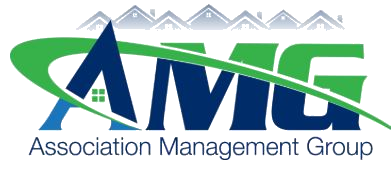New Legislation Allows North Carolina Condominium and Homeowners Association Residents to Conduct Virtual Meetings
/For Immediate Release
Contact: Amy Hawkes Repke, arepke@caionline.org, 703-970-9239
Leslie Blum, Leslie.blum@cai-nc.org, 919-525-4993
New Legislation Allows North Carolina Condominium and Homeowners Association Residents to Conduct Virtual Meetings
Sept. 21, 2021—Falls Church, VA—Community Associations Institute (CAI) applauds Governor Cooper and the North Carolina General Assembly for the recent passage of HB 320 Modernize Remote Business Access, new legislation allowing community associations to conduct their association’s board and annual meetings virtually.
The legislation supports the 2.8 million North Carolina residents living in the state’s 14,000 community associations, commonly referred to as condominiums, homeowners associations, and housing cooperatives.
Prior to the COVID-19 pandemic, community associations were required to host in-person meetings. Once the pandemic forced residents to shelter in place, CAI and the Institute’s North Carolina Legislative Action Committee began advocating for new laws to assist community associations officially conduct business. On Dec. 31, 2020, the state’s emergency executive orders authorized a board “in its sole discretion” to determine that all or any part of a membership meeting may be conducted by remote communication and remote balloting. Since December, North Carolina residents immediately voiced a preference to this type of meeting.
“Virtual meetings have increased the efficiency and resident participation of meetings resulting in more community engagement, as well as offering a cost-effective way to share information and documents,” says, Paul Mengert, CMCA, PCAM, chair and federal liaison of the CAI North Carolina Legislative Action Committee. “While compromise was needed by all parties to move this legislation forward, we are very pleased the legislature and Governor recognized the need to support virtual meetings in North Carolina communities.” added Mengert.
CAI-NC Offers Educational Webinar About HB 320 Oct. 5, 2021 – All are welcome! Info & Registration here.
Since March 2020, nearly half (47%) of associations say they’re now hosting virtual board meetings and 49% of associations report that virtual meetings have increased efficiency for association operations, according to CAI’s Virtual Meeting & Electronic Voting Survey results. According to CAI, the North Carolina Legislative Action Committee worked closely with lawmakers to help craft the legislation so that it is meaningful to homeowners living in community associations and their governing boards of directors. “The new legislation is a huge win for North Carolina community association residents,” says Thomas M. Skiba, CAE CAI’s chief executive officer. “We’ve witnessed the pandemic change the way companies conduct business and community associations are no exception. We believe that the best communities have highly engaged members and by creating new channels of communication, more residents have the opportunity to be heard—increasing homeowner participation and collaboration to make important decisions for the community.”
Today, 12 states have statutes that allow for remote or virtual meetings, six states initially enacted emergency powers that allow associations to meet virtually with both Connecticut and North Carolina passing and enacting state statutes since the start of the pandemic. For a full list, visit at www.caionline.org/virtualmeetings.
About Community Associations Institute
Since 1973, Community Associations Institute (CAI) has been the leading provider of resources and information for homeowners, volunteer board leaders, professional managers, and business professionals in the more than 355,000 homeowners associations, condominiums, and housing cooperatives in the United States and millions of communities worldwide. With more than 42,000 members, CAI works in partnership with 36 legislative action committees and 63 affiliated chapters within the U.S., Canada, South Africa, and the United Arab Emirates as well as with housing leaders in several other countries, including Australia, Spain, and the United Kingdom. A global nonprofit 501(c)(6) organization, CAI is the foremost authority in community association management, governance, education, and advocacy. Our mission is to inspire professionalism, effective leadership, and responsible citizenship—ideals reflected in community associations that are preferred places to call home. Visit us at www.caionline.org and follow us on Twitter and Facebook @CAISocial.
CAI-North Carolina Chapter is one of more than 60 Community Associations Institute chapters across the US and around the globe.























